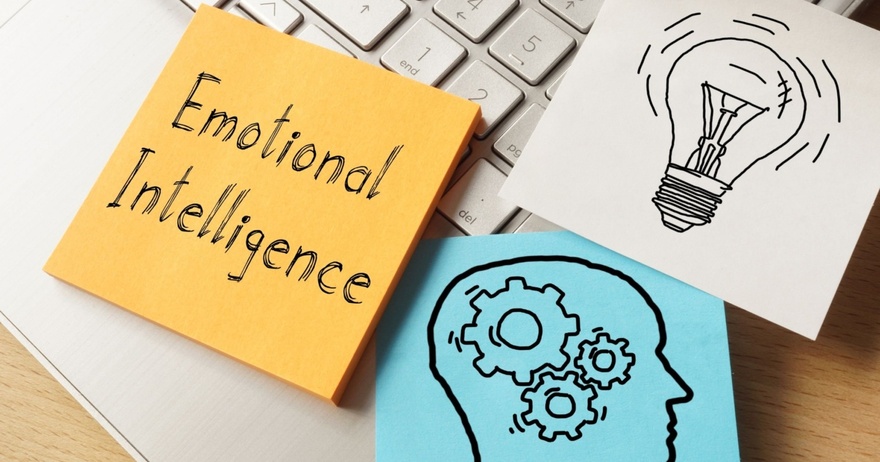Emotional intelligence, often abbreviated as EQ (Emotional Quotient), is a vital attribute that influences how we navigate life’s challenges and build meaningful connections with others. Unlike IQ, which measures cognitive ability, EQ measures our ability to recognize, understand, and manage our emotions and those of others. It plays a significant role not only in personal success but also in professional settings, helping individuals develop resilience, empathy, and effective communication skills. Fortunately, emotional intelligence is not fixed—it can be cultivated over time through intentional practice and self-awareness.

In today’s fast-paced world, emotional intelligence is becoming more critical than ever. According to the World Economic Forum’s Future of Jobs 2023 report, skills associated with emotional intelligence, such as resilience, curiosity, lifelong learning, self-awareness, and motivation, are increasingly valuable in the workplace and will remain so for years to come. For this reason, understanding the habits and behaviors that indicate a high EQ is key to self-improvement.
Below are 9 signs of emotional intelligence that you can explore, practice, and develop to enhance your emotional and social capabilities.
1. Mastering the Art of Strategic Volatility
Emotionally intelligent individuals understand the balance between action and delay, a concept known as strategic volatility. They are not afraid to let tasks simmer for a while, knowing that giving their subconscious time to process can yield more creative and effective solutions. Instead of rushing to complete everything immediately, they deliberately allow themselves time to think, plan, and innovate.
This habit reflects their emotional awareness and their ability to trust in the natural flow of ideas. The pause allows for better decisions, particularly in complex or emotionally charged situations. By delaying action, they gain new perspectives and see solutions that might not have been apparent in the heat of the moment.
2. Embracing Ambiguity
High EQ individuals thrive in ambiguity. While most people feel uncomfortable with uncertainty, emotionally intelligent people are at ease with the unknown. They recognize that not every situation will have a clear answer or immediate resolution, and they are okay with that. This acceptance allows them to approach challenges with a calm, open mind, rather than reacting out of fear or frustration.
Embracing ambiguity also enhances their adaptability. They can quickly pivot when circumstances change, making them more resilient in the face of life’s ups and downs. Their comfort with uncertainty makes them not only better decision-makers but also more empathetic, as they recognize that others may struggle with the unknown in different ways.
3. Reading People
One of the hallmarks of emotional intelligence is the ability to read people effectively. High EQ individuals excel at picking up on non-verbal cues, such as body language, facial expressions, and tone of voice. This skill enables them to understand others’ emotions, motivations, and intentions, even when they are not explicitly stated.
By being attuned to these subtle signals, emotionally intelligent people can assess social dynamics quickly, detect threats or conflicts, and navigate complex interpersonal relationships with ease. In both personal and professional settings, this heightened awareness helps them build rapport, resolve conflicts, and establish trust with others.

4. Pausing Before Reacting
Emotionally intelligent people possess the invaluable habit of pausing before reacting. Instead of responding impulsively to emotional triggers, they take a moment to breathe, reflect, and choose their response carefully. This ability to control their immediate reactions allows them to handle emotionally charged situations with calm and composure.
This pause is not about suppressing emotions, but about managing them effectively. By waiting to react, they avoid saying or doing things they might regret later. This practice not only enhances their personal relationships but also makes them better leaders and teammates in professional environments, where quick reactions can lead to misunderstandings or unnecessary conflict.
5. Taking Micro-Meditation Breaks
In the hustle and bustle of daily life, emotionally intelligent people recognize the importance of micro-meditation. These short, mindful breaks throughout the day allow them to reset, reduce stress, and stay grounded. Whether it’s a quick breathing exercise, a few moments of mindfulness, or a brief pause to reflect, these small meditative practices help them stay calm and focused.
By incorporating micro-meditation into their routine, emotionally intelligent individuals can maintain their emotional equilibrium, even in high-stress environments. This habit enhances their ability to manage stress and prevents burnout, making them more effective and resilient over the long term.
6. Managing Emotions Through Playlists
One of the more unique habits of emotionally intelligent people is their use of music to navigate emotions. They create specific playlists tailored to their emotional states, using music as a tool to process their feelings. If they are feeling sad, they may listen to songs that help them explore that sadness more deeply. Conversely, when they are in a positive mood, they engage with music that enhances feelings of joy, inspiration, or excitement.
This conscious engagement with their emotional states through music demonstrates their ability to acknowledge and work through their emotions rather than avoid them. By allowing themselves to fully feel their emotions, they can process them more effectively and move forward with clarity.

7. Adapting Their Environment to Influence Mood
Emotionally intelligent people understand the power of their environment in shaping their emotions and productivity. They are skilled at adapting their surroundings to enhance their mood and mental state. Whether it’s adjusting the lighting, choosing specific scents, or curating the sounds around them, they know how to create an atmosphere that aligns with their emotional and professional goals.
This habit of curating their environment allows them to be more productive, creative, and emotionally balanced. It also shows their ability to take proactive steps in managing their emotional well-being, rather than passively reacting to external stimuli.
8. Limiting Social Media Use
Emotionally intelligent individuals recognize the potential harm of social media on mental health. They are aware that excessive use of social media can lead to comparison, insecurity, and distraction from their true goals. Therefore, they set strict boundaries around their social media consumption.
By reducing their exposure to the often superficial and negative influences of social media, they protect their mental well-being and maintain a stronger sense of self. This habit allows them to focus on their own feelings, identity, and values, rather than being swayed by external pressures or the curated lives of others.
9. Reframing Personal Narratives
One of the most powerful habits of emotionally intelligent people is their ability to rewrite their personal narratives. Rather than seeing failures or setbacks as definitive, they view them as opportunities for growth and learning. They constantly work on reframing their life stories in a way that highlights personal development, resilience, and strength.
This habit of reframing applies not only to their own lives but also to how they help others. Emotionally intelligent individuals are often adept at guiding others through challenging situations by helping them see the silver lining or the lessons embedded in their experiences. This reframing fosters a more optimistic, resilient mindset and empowers both themselves and those around them to face future challenges with confidence.

Cultivating Emotional Intelligence: A Lifelong Journey
Emotional intelligence is not a fixed trait—it is a skill set that can be developed and refined over time. By practicing the habits outlined above, you can increase your emotional awareness, enhance your empathy, and improve your ability to manage both your own emotions and those of others. Whether it’s through strategic pauses, mindful meditation, or a more intentional approach to your environment, these habits contribute to greater emotional resilience and a more fulfilling life.
In a world that is increasingly valuing emotional intelligence, particularly in the workplace, now is the time to start cultivating these skills. As you integrate these habits into your daily life, you’ll not only improve your relationships but also boost your overall well-being and success.
By understanding the signs of high emotional intelligence and working to adopt these habits, you can begin to unlock your full emotional potential and create a more balanced, meaningful, and emotionally intelligent life.
Jesse Plemons Once Played Late Philip Seymour Hoffman’s Son Before Taking on His Hunger Games Character for Upcoming Prequel
Brooke Shields Breaks Down in Tears After Husband Chris Henchy Surprises Daughter for Her Birthday
Only Geniuses Can Solve This Math Puzzle in 10 Seconds
Stephen Hawking’s Doomsday Warning is Coming Faster Than We Thought






























